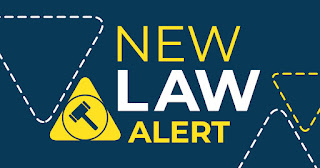By Executive Order 202.11, Governor Cuomo enacted new penalties, in addition to what we discussed in our blog - What Happens When You Ignore the Essential Services Executive Order, if you keep your real estate open in violation of an Executive Order.
The new penalty order states as follows:
The new penalty order states as follows:
During the period when an Executive Order limiting operation of a type of facility or limiting the number of persons who may occupy any space is in effect, any operation of such a facility or occupancy of any such space by more than the number of persons allowed by said Executive Order shall be deemed to be a violation of law and in particular, but not by way of limitation, shall be deemed to be a violation of the Uniform Code or other local building code in effect in the jurisdiction in which the facility or space is located. In the event of any such violation, any state, county, or local police officer authorized to enforce laws within the jurisdiction in which the space or facility is located is authorized to remove persons from such space or facility. In addition, in the event of such violation, any state, county, or local code enforcement official or fire marshal authorized to enforce the Uniform Code or other local building code within the jurisdiction in which the facility or space is located is authorized to issue an appearance ticket, a Notice of Violation, an Order to Remedy such violation, which shall require immediate compliance, and/or a Do Not Occupy Order to any owner, operator, or occupant of any such facility or space. Nothing in this provision shall limit the authority of any governmental unit or agency to take such other and/or additional enforcement actions to the extent necessary to ensure compliance with such occupancy-related directives or facility operation-related directives.As such, here is your exposure:
- Charge of "violation of law"
- Charge of "violation of the Uniform Code or other local building code"
- Removal by police
- Receipt of an appearance ticket, Notice of Violation, and/or Order to Remedy
- Receipt of a Do Not Occupy Order to the "owner, operator, or occupant of any such facility or space"
Oh, by the way, you are KILLING people. So, stop it and close when you are ordered to close.












